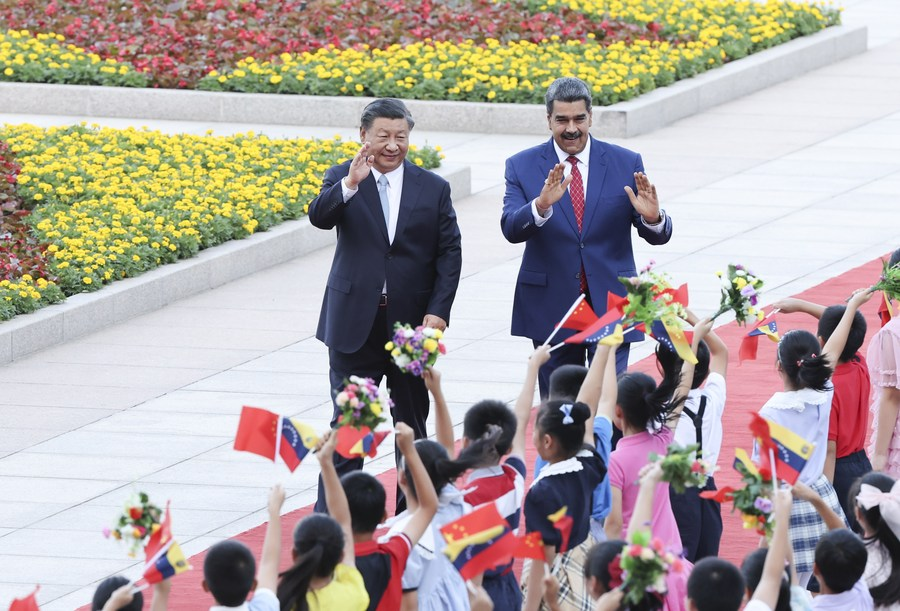The Dark Side of the "United Front": Jamestown Report Links Hongmen Network to Organized Crime and CCP Influence
- Gabriele Iuvinale

- 12 giu 2025
- Tempo di lettura: 3 min
Washington, D.C. – A bombshell new report released by the Jamestown Foundation, an influential Washington think tank, has shone a harsh light on a complex and opaque global network known as Hongmen, or the "Chinese Freemasons." The document, titled "Hongmen Associations Have Links to United Front and Organized Crime," uncovers alleged direct connections between this network and transnational organized crime activities, as well as covert Chinese Communist Party (CCP) influence campaigns.

The report, released on June 7, 2025, and authored by Martin Purbrick, paints a troubling picture of how Hongmen associations are not just custodians of cultural traditions but also vehicles for Beijing's most sensitive political objectives, including the annexation of Taiwan and the global expansion of the Belt and Road Initiative.
The Hongmen: Between Tradition and Political Stratagem
The Hongmen, with historical roots stemming from Chinese secret societies and fraternities, have long held an ambiguous reputation. The Jamestown Foundation report argues that this ambiguity has been skillfully exploited by the CCP. On the surface, Hongmen associations promote Chinese culture and patriotism among overseas communities. However, according to Purbrick, this façade serves to mask a deeper role: that of a tool for the CCP's "United Front," a department tasked with co-opting and neutralizing potential sources of opposition, both inside and outside China.
"Hongmen associations, with their emphasis on traditional Chinese culture and patriotism, provide an ideal platform for promoting the CCP's narrative, especially regarding national unification with Taiwan," the report states. One example cited is the "Taiwan All Circles Conference to Promote Peaceful Reunification" in 2023, an event where Hongmen allegedly served as a stage for CCP-aligned messaging abroad.
The Fine Line Between Hongmen and Criminal Triads
Perhaps the most alarming aspect of the report is the alleged explicit link between Hongmen and criminal triad societies. Purbrick contends that, due to their mythologized origins and shared rituals, the distinction between Hongmen and triads has become "nearly indistinguishable."
This intertwining isn't just historical or ceremonial; it has practical implications in the world of organized crime. The report suggests that criminal actors are actively "co-opting the Hongmen brand" to legitimize and develop their illicit ventures, especially in countries participating in the Belt and Road Initiative. This co-optation often occurs under the guise of patriotism or cultural promotion.
U.S. authorities have previously taken action against individuals and businesses linked to Hongmen for their alleged criminal ties, a sign that the concerns raised by the report are well-founded and monitored internationally.
The Belt and Road as a New Playground
China's Belt and Road Initiative (BRI), an ambitious global infrastructure strategy, emerges in the report not only as an economic development project but also as an opportunity for the expansion of Hongmen activities, both legitimate and illicit.
The report highlights a growing presence of individuals and organizations affiliated with Hongmen in BRI partner countries. These entities are allegedly using the Hongmen name for a variety of ventures, including security firms, liquor brands, and even cryptocurrency initiatives. This expansion, disguised as investment and cooperation, could facilitate money laundering, illicit goods trafficking, and other criminal activities under the umbrella of "legitimate" development projects.
Geopolitical Implications and National Security
The Jamestown Foundation's findings raise serious questions for national security and global stability. If the connections between Hongmen, organized crime, and CCP influence campaigns are as deep as suggested, it could mean that:
Chinese diaspora communities are more vulnerable to influence and, in some cases, coercion by actors linked to the CCP and criminal elements.
Foreign intelligence operations face a more elusive adversary, capable of operating through seemingly non-governmental and cultural networks.
International cooperation against organized crime becomes even more complex, given the veneer of legitimacy and political connections that some of these networks might claim.
The Jamestown Foundation's report serves as a stark warning to governments and intelligence agencies worldwide to look more closely at seemingly benevolent networks that may conceal more sinister purposes. As Beijing continues to expand its global influence, understanding tools like the Hongmen network becomes crucial for safeguarding national interests and international security.




Commenti